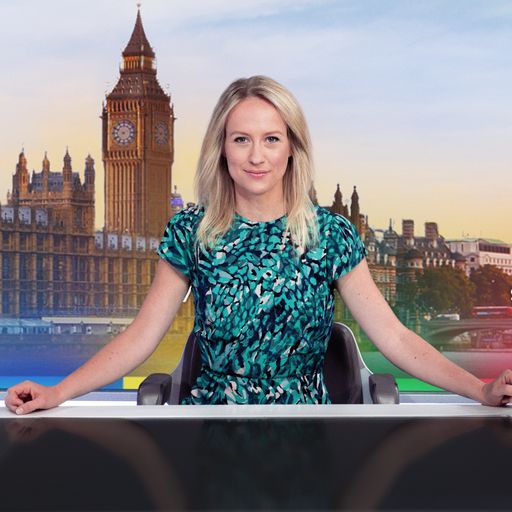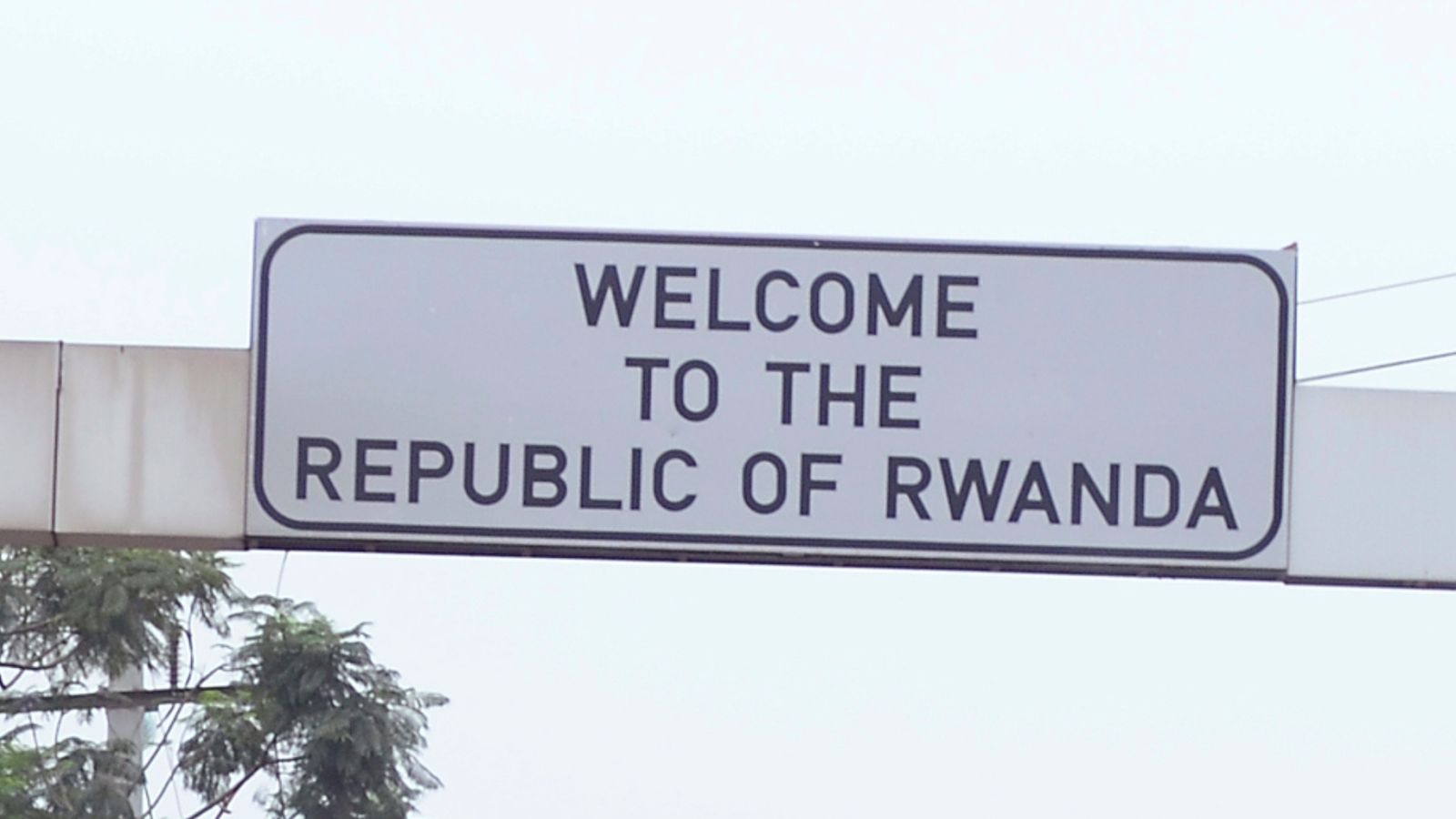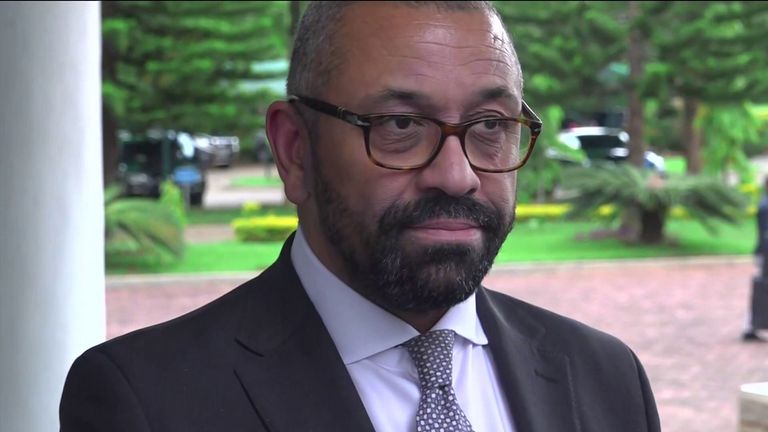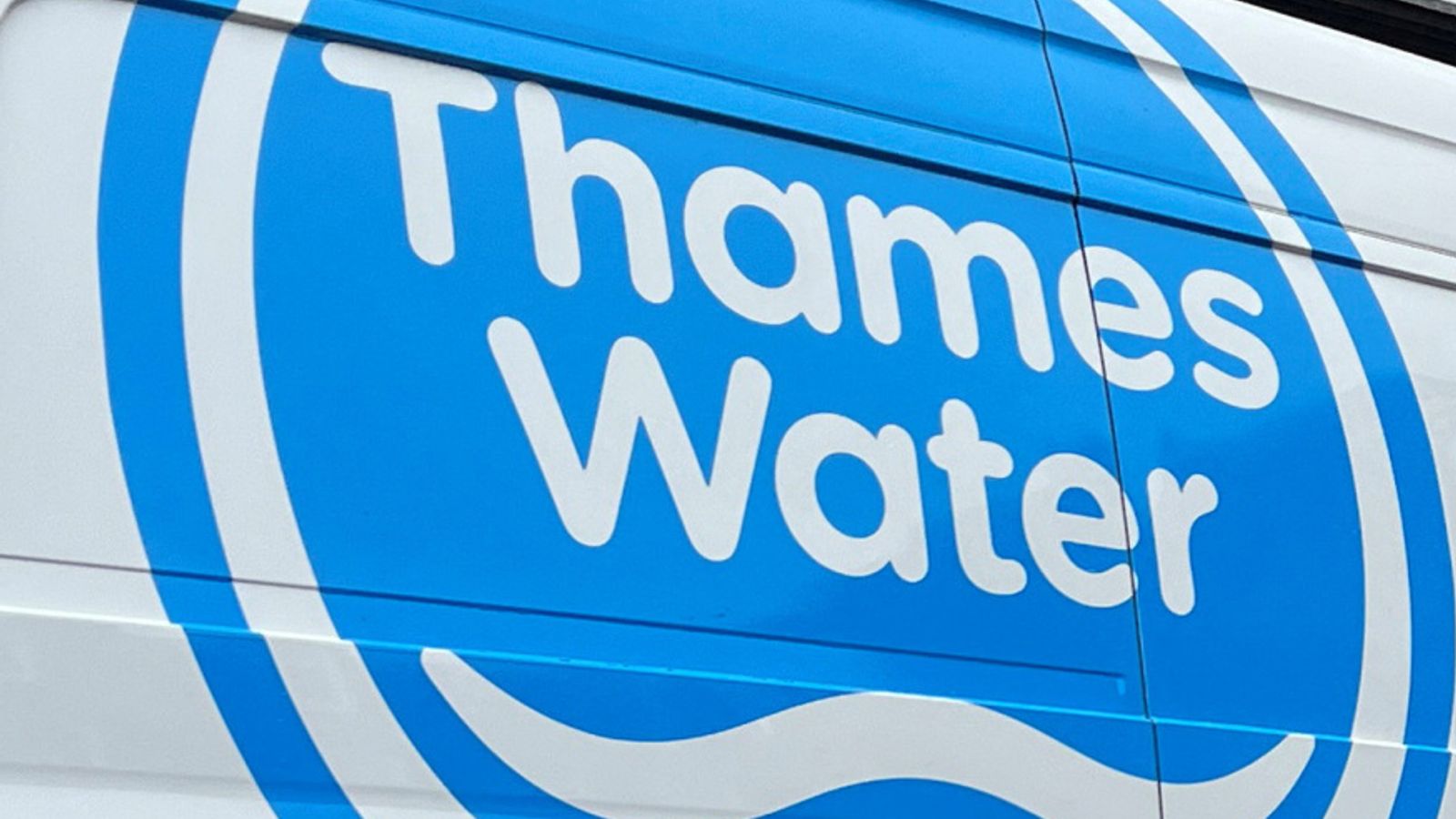
The UK and Rwandan governments have agreed a new treaty in a bid to get deportation flights of asylum seekers off the ground.
Prime Minister Rishi Sunak will be hoping the agreement addresses the issues raised by the Supreme Court when it said the plans were unlawful last month – with Westminster banking on judges reacting favourably to the memorandum of understanding being upgraded to a full-fat treaty.
Meanwhile, Rwanda is trying to show it is a safe country to send people to after numerous issues were raised in the legal wrangling.
But what are the changes announced today? Sky News has had a look and will explain below.
Politics news: Home sec can’t say migrants will be in Rwanda before election
Money
One of the key aspects of the agreement between the UK and Rwanda is the amount of UK taxpayer money being spent.
Already £140m has exchanged hands – and that’s before any flights took place.
While there is an insistence there was no quid pro quo as part of the Rwanda agreement, the Home Office is expecting additional costs due to the changes brought about by the treaty.
Read more:
Everything you need to know about the immigration plan
Rwanda plan ruled unlawful by Supreme Court
Refoulement
This was the key issue raised in the court’s ruling.
Refoulement is when an asylum seeker is returned to a country where they face persecution, and it was said to be something Rwanda had done.
But the treaty will fix this, with Rwanda agreeing to only send people back to the UK if there are issues.
There is not an exhaustive list of why people could be returned from Rwanda to the UK.
However, some examples include them committing a crime and being sentenced to more than five years in prison – at this point Rwandan law requires them to be removed.
By being returned to the UK, this would not breach refoulement, the Home Office believes.
Another example is if someone wins a legal appeal against the UK government over their deportation.
There is also a new appeals process which will take place in Rwanda.
Notably, the treaty also contains a provision for the UK to resettle “a portion” of Rwanda’s “most vulnerable” refugees.
Appeals
While the minutiae are still unclear, one thing we do know is that a new appeals process will be implemented.
This will be within Rwanda’s high court system, and will handle cases like if Rwanda looks to deport someone after they commit crimes.
Rwandan judges will oversee the cases – alongside British and Commonwealth judges.
They will decide whether the person gets deported.
Click to subscribe to Politics at Jack and Sam’s wherever you get your podcasts
Flights taking off
Before the treaty was announced, immigration minister Robert Jenrick told Sky News he was confident flights to Rwanda would take off before the next election.
However, once the announcements were made, his boss, Home Secretary James Cleverly, was less certain.
He said he could not see a “reason” why people would not be sent soon.
But pushed if he could guarantee take-offs before the next general election, Mr Cleverly said: “The only thing I can guarantee is the effort that we put in.”













